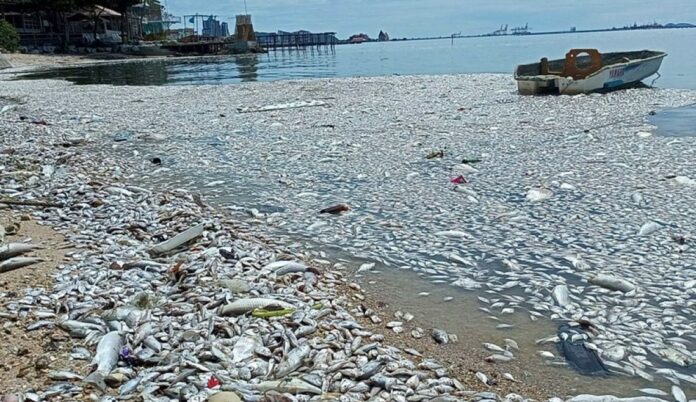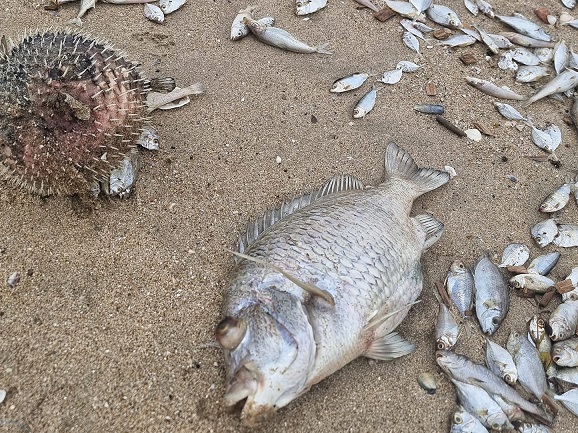The water in some parts of the Gulf of Thailand has been seen to contain nearly 10 times the typical level of plankton, which has caused the water to turn a brilliant shade of green and has led to the death of marine life. Marine biologists have observed this phenomenon. Plankton blooms can create poisons that are damaging to the environment, deplete oxygen levels, and block sunlight, all of which can result in dead zones. These blooms typically take place once or twice a year and persist for two to three days.
The well-known mussel farms along the Chon Buri coast have suffered greatly as the bloom has infected more than 80% of the nearly 300 plots in the area. As a result of the plankton bloom, an enormous number of dead fish have been found along a shoreline that is 1,500 meters long and is located on popular beaches in Chon Buri, according to the local authorities. Despite the fact that oxygen levels have dropped as a result of the bloom, they stated that the seawater in the region is still suitable for use in recreational activities and in the villages that surround it.

While the specific reason of this enormous plankton bloom remains obscure, scientists believe that pollution and the intense heat connected to climate change are the key causes. The effects of El Nio, which include increased dryness and warmer water temperatures, make the situation much worse. Scientists strongly advocate the management of resources, the preservation of water supplies, and the adoption of sustainable lifestyle practices as potential solutions to these environmental issues.
At the beginning of this year, a second plankton bloom caused millions of dead fish to wash up on a beach in Chumphon province. Experts attribute these events to the impact that climate change is having on the environment. As a result of rising sea temperatures, marine heatwaves have become a significant problem on a global scale. This has led to the washing up of thousands of dead fish on beaches in Texas and the formation of algal blooms along the coast of the United Kingdom.
READ MORE




